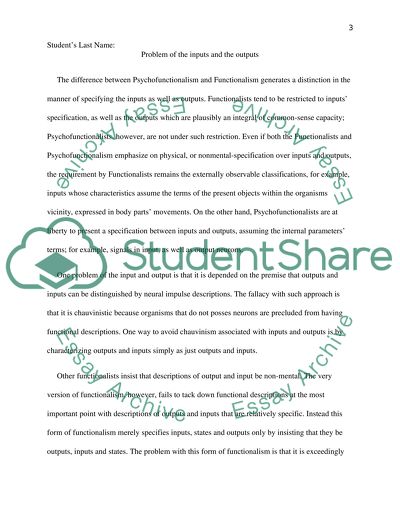Cite this document
(“Functionalism Philosophy Term Paper Example | Topics and Well Written Essays - 1500 words”, n.d.)
Functionalism Philosophy Term Paper Example | Topics and Well Written Essays - 1500 words. Retrieved from https://studentshare.org/philosophy/1438043-functionalism
Functionalism Philosophy Term Paper Example | Topics and Well Written Essays - 1500 words. Retrieved from https://studentshare.org/philosophy/1438043-functionalism
(Functionalism Philosophy Term Paper Example | Topics and Well Written Essays - 1500 Words)
Functionalism Philosophy Term Paper Example | Topics and Well Written Essays - 1500 Words. https://studentshare.org/philosophy/1438043-functionalism.
Functionalism Philosophy Term Paper Example | Topics and Well Written Essays - 1500 Words. https://studentshare.org/philosophy/1438043-functionalism.
“Functionalism Philosophy Term Paper Example | Topics and Well Written Essays - 1500 Words”, n.d. https://studentshare.org/philosophy/1438043-functionalism.


